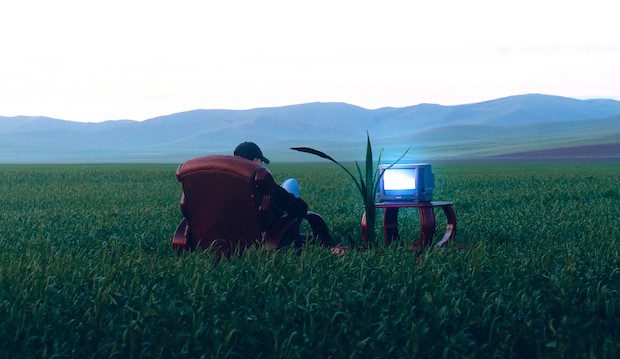Productivity guilt is a silent battle fought behind closed doors.
You hear people brag about how productive they are, and how they’re better than you at ticking goals off and winning Olympic gold medals while you’re stuck in your apartment on the couch being lazy. I’m slightly obsessed with productivity. Things got crazy in 2015 when I had a near-miss with cancer.
Suddenly I faced the grim reality of, “What if this is it?”
From that day on I didn’t want to waste time anymore. No time for messing around. No time for jerks. No time for hate. No time to be stuck working a job that ripped out my soul and replaced it with a deathly ghost.
Since quitting my job, I’ve faced multiple days in a row of productivity guilt. Only after chatting to two friends in Europe recently did I understand what was happening.
A big goal has huge downsides
Most humans are overly optimistic — we enter the day with an expectation and plan of getting all sorts of things done. — Heidi Grant, Harvard Business Review
Many of us have a big goal in life. Mine is writing.
I love writing. It sets my mind free and makes me think I can achieve the impossible. Writing helps me structure my thoughts and distill all the lessons I find in books, podcasts, and documentaries.
Without letting my head inflate to the size of a hot air balloon, I’ve had a small amount of success at writing over almost eight years. You’d think I’d be on top of the world and high-fiving productivity guru James Clear. Nope.
My big goal to inspire millions of people with writing has a huge downside: it’s never enough.
You won’t hear that often. You’ll get told it is enough and that most people with big goals are kneeling on their buckwheat yoga pillow, and doing a daily gratitude practice while having late-night phone calls with the Dalai Lama.
Not true.
Goals can make you forget about gratitude. You can keep wanting more. When you start wanting more, productivity guilt enters the scene and messes with your life.
What Productivity Guilt feels like
Productivity guilt feels like having the Joker from Batman poke needles in your eyes randomly throughout the day.
As soon as you’re not “feeling it,” the Joker enters your head and tells you to get back to work. Taking a walk with your significant other is enough to trigger the problem. You keep thinking about all that work back at your home office that needs to be done. I often find myself looking at my phone and thinking, “Oh crap, a customer email. I can’t keep them waiting.”
The worst days for me are low productivity days. Those days when I try everything and still only manage to complete one small task, like sending a 400-word email to my readers. When I face consecutive days like this, the Joker enters my head and quietly says “things are going downhill.”
If I let the feeling persist for long enough, I start to complete multiple back-to-back days of low productivity that cause enormous productivity guilt.
The biggest fear: low productivity becomes a habit
Self-improvement books teach us the power of habits. What they don’t explain is they can work in reverse. If you let productivity guilt become a habit, it can start to really screw with your life. I’ve come close a few times.
Productivity guilt weighs heavily on your brain. It starts to deplete your energy, and make the path ahead foggy.
Success increases productivity guilt
The more I succeed in the field of writing, the higher the productivity guilt is. The lie we believe at the start is when we perform well we’ll give ourselves a break. The opposite is true. High performance is addictive. High performance pushes us to reach even higher.
The Powerful Antidote to Productivity Guilt
You can defeat productivity guilt by stopping the ascent of progress. Pre-plan phases of your growth where results stay the same, or god forbid, go backwards. Going backwards allows you to move forward.
Solution: enable productivity plateaus.
I’m experimenting with a plateau right now. I want my business to calm down and not grow stupidly high every month. The time I save on having to keep ascending higher allows me to rest and enjoy the journey. I want more walks, more random conversations with people from the past, a lot more books, and a helluva lot less drama.
Never-ending growth feels like the answer. But if all you do is grow, you will reach a point where your work ethic takes over your life. Where you feel like you’ve always gotta be grinding it out to survive.
The best example of productivity guilt is billionaires. They have so much money, yet their productivity guilt tells them they need to progress even more, according to research. They’ll never admit it to you, of course. Spend time with a billionaire, though, and you’ll see they’re afraid of productivity guilt. A day of zero progress can force them into a rage. Rage turns to ego. Ego causes them to do dumb stuff. Now you know why billionaires do a lot of dumb stuff.
Plateaus allow progress to become healthy again.
Question: What if plateaus were more powerful than the never-ending ascent?


